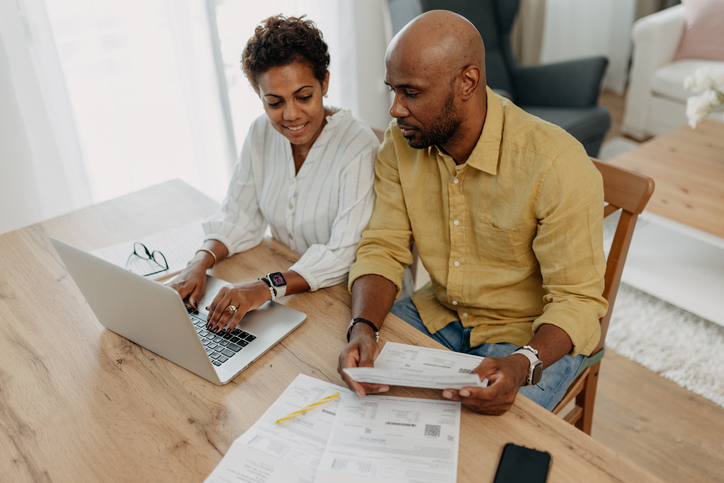|
While you might not immediately associate retirement with homeownership, buying a home after age 60 can be thrilling and financially savvy. Instead of looking for highly rated school districts, you can find the ideal combination of comfort, affordability and proximity to those who matter most. That said, no matter your circumstances, buying a house as you near retirement age can have a lasting impact on your retirement finances. Here’s what you should consider before buying a house after age 60. A financial advisor can help you figure out when buying a home makes sense for your financial plan. Pros of Purchasing a Home After Age 60 Purchasing a home after age 60 can be a wise financial move. Here are four common benefits: Opportunity to build equity. No matter where you are in life, equity is a powerful financial tool. When your home value rises above the amount left on your mortgage, you’re building equity. For example, if you have a $300,000 home and your mortgage loan balance is $200,000, you have $100,000 of equity. You can use equity to pay for various needs, such as home repairs, paying off debt, or funding a vacation. In addition, the more equity you have, the more potential profit you’ll make by selling your home. Therefore, building equity gives you financial leverage in numerous situations. Tax breaks. Homeownership means tax breaks! Depending on your circumstances, you may be able to take advantage of the following: Security. Housing is currently in high demand and renters can lose their homes at the whim of landlords or economic instability. On the other hand, if you have a fixed-rate mortgage, your housing payment won’t change after you move in. As a result, homeownership gives you solid financial footing and a consistent monthly housing bill that won’t jump because of market fluctuations. Establish a legacy to leave behind to your heirs. A well-maintained home is an asset and buying one after age 60 means decades of homeownership for you and future generations. By passing on your home to your heirs, you can provide them a financial foundation from which to build. Housing is usually a family’s largest monthly expense and removing that for your children or grandchildren is a tremendous benefit. Cons of Purchasing a Home After Age 60
While homeownership after age 60 can bring a host of positives, here are three common drawbacks before signing the dotted line on closing day: Maintenance and repair costs. A home is an asset and a responsibility. Once you move into a new home, you inherit seemingly limitless chores and tasks: mowing the lawn, cleaning the gutters and getting rid of pests, to name a few. Plus, as you age, you might become unable to get up on ladders or spend hours raking leaves, meaning you’ll pay for these services. In other words, homeownership brings physical and financial demands for the care of your property. Therefore, saving money for upkeep is essential. It’s recommended to budget 1% to 4% of your home’s value for annual repairs and maintenance. For instance, you might have a $250,000 home. In this case, you would budget $2,500 to $10,000, depending on your situation. Closing costs. Buying a home is exciting, but closing day can exhaust your savings. For example, you’ll pay for loan origination fees, home inspections, and title insurance during the home-buying process. As a result, you can expect to pay between 3% and 6% of your loan balance in closing costs. Moreover, these expenses are separate from your down payment, meaning you’ll likely need tens of thousands of dollars to purchase a home. Lack of flexibility when circumstances change. A significant benefit of renting is the lack of commitment. For example, if you want to pick up and move across the country as a renter, you wait for your lease to end (or break it early if you can afford it) and leave your apartment or rental home behind. Once you hand over the keys, it’s a clean break. On the other hand, homeownership makes it more challenging to pull up your roots at a moment’s notice. Selling or renting out your home takes time, effort, and more money. Therefore, if you like moving frequently, homeownership can be a hindrance instead of a blessing. Key Considerations When Buying a Home After Age 60 Buying a home after age 60 is a serious financial commitment. Here are three key points to keep in mind when making your decision: Housing timeline. If you envision spending the next 20 years in your next home, homeownership is likely an excellent move. However, as the number of years you’ll live in the home decrease, the benefits of homeownership decrease. Specifically, living in a home for less than five years after buying will likely nullify the financial gains from tax breaks or increases in home value. As a result, it’s wise to ask yourself what your plan is for the next decade or two. If it involves moving multiple times, a home might be a liability rather than an asset. Evaluate the real estate market. Your region’s real estate market is unique from the other side of the state or country. For example, urban areas can be more affordable for renters than homeowners. On the other hand, you might find an affordable slice of land in the countryside that perfectly suits you. Therefore, it’s a good idea to weigh your preferences against your local housing market. A high supply of homes and modest interest rates can help make buying a home affordable. Identify the home that suits you. After age 60, you might want to spend your time on something other than mowing grass or shoveling snow. So, it’s crucial to ask yourself what type of home is realistic to own. Acres of land might be out of the question unless you can afford help taking care of it. On the flip side, a condominium with built-in lawn care can provide comfort and convenience. Is Buying a Home After Age 60 a Good Idea? Buying a home after 60 can make sense if you have sufficient monthly income and find an affordable home. In addition, if you’re physically capable of maintaining the home or can pay for extra help, homeownership won’t become burdensome. Lastly, if you have family you’d like to leave the home to, you can enjoy decades of living in a house that will someday belong to your children and grandchildren. On the other hand, buying a home after 60 can hurt you financially. For example, if you plan on moving in five years or less, the expenses of homeownership will cost more than the financial benefits. Plus, you’ll have to sell or rent out the home when you want to move. As a result, homeownership can incur responsibilities you may not want to shoulder, especially if you’re retired and want to travel. Bottom Line
Buying a home after age 60 can be a blessing or curse, depending on your circumstances. While you can reap tax advantages and leave a legacy for your family, owning a home is a commitment with definite financial implications. Therefore, evaluating your financial capabilities and your plan for the next few decades can help you decide whether it’s best to put down your roots as a homeowner or become a renter with fewer responsibilities. Tips for Buying a House After Age 60 Photo credit: ©iStock.com/PeopleImages, ©iStock.com/Inside Creative House, ©iStock.com/fizkes Ashley KilroyAshley Kilroy is an experienced financial writer currently serving as an investment and insurance expert at SmartAsset. In addition to being a contributing writer at SmartAsset, she writes for solo entrepreneurs as well as for Fortune 500 companies. Ashley is a finance graduate of the University of Cincinnati. When she isn’t helping people understand their finances, you may find Ashley cage diving with great whites or on safari in South Africa.Read More About Mortgage
Home Buying How to Do a Property Title Search in 5 Steps February 19, 2025Read More
HELOCs & Equity Guide to Home Equity Investment: Pros and Cons April 25, 2025Read More
Home Buying How Much of Your Monthly Income Should Go to a Mortgage? July 30, 2025Read More
Home Buying Are Your HOA Fees Tax-Deductible? February 25, 2025Read More (责任编辑:) |







